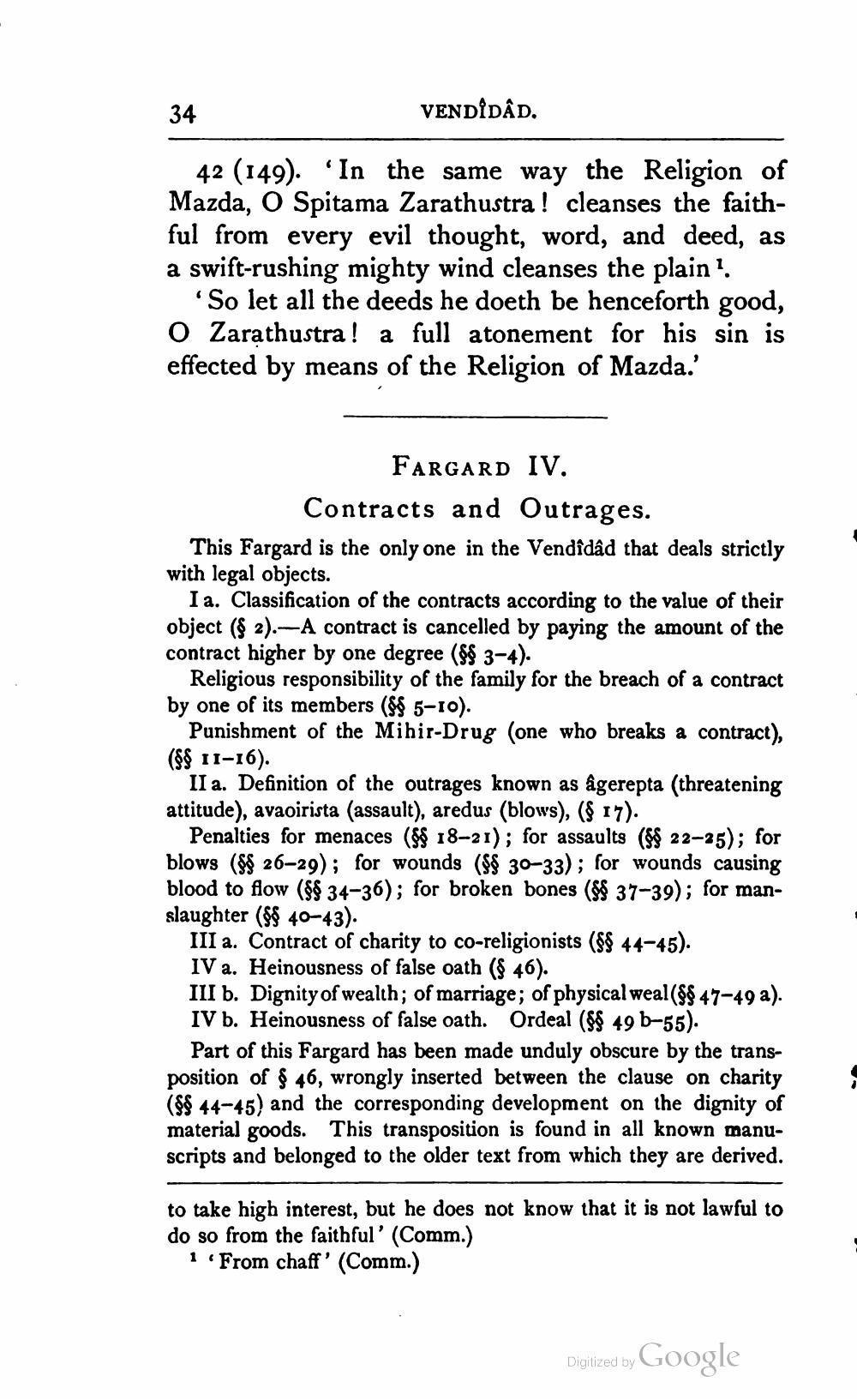________________
34
VENDIDAD.
42 (149). In the same way the Religion of Mazda, O Spitama Zarathustra! cleanses the faithful from every evil thought, word, and deed, as a swift-rushing mighty wind cleanses the plain1.
'So let all the deeds he doeth be henceforth good, O Zarathustra! a full atonement for his sin is effected by means of the Religion of Mazda.'
FARGARD IV.
Contracts and Outrages.
This Fargard is the only one in the Vendîdâd that deals strictly with legal objects.
I a. Classification of the contracts according to the value of their object (§ 2).-A contract is cancelled by paying the amount of the contract higher by one degree (§§ 3-4).
Religious responsibility of the family for the breach of a contract by one of its members (§§ 5-10).
Punishment of the Mihir-Drug (one who breaks a contract), (§§ 11-16).
II a. Definition of the outrages known as âgerepta (threatening attitude), avaoirista (assault), aredus (blows), (§ 17).
Penalties for menaces (§§ 18-21); for assaults (§§ 22-25); for blows (§§ 26-29); for wounds (§§ 30-33); for wounds causing blood to flow (§§ 34-36); for broken bones (§§ 37-39); for manslaughter (§§ 40-43).
III a. Contract of charity to co-religionists (§§ 44-45).
IV a. Heinousness of false oath (§ 46).
III b. Dignity of wealth; of marriage; of physical weal (§§ 47–49 a). IV b. Heinousness of false oath. Ordeal (§§ 49 b-55).
Part of this Fargard has been made unduly obscure by the transposition of § 46, wrongly inserted between the clause on charity (§§ 44-45) and the corresponding development on the dignity of material goods. This transposition is found in all known manuscripts and belonged to the older text from which they are derived.
to take high interest, but he does not know that it is not lawful to do so from the faithful' (Comm.)
1 'From chaff' (Comm.)
Digitized by
Google




